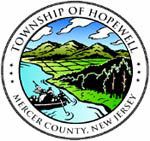By Frank Mustac, Contributor
Fair Share Housing Center, a nonprofit affordable housing advocacy organization, recently expressed its desired outcome for the Mercer County affordable housing trial that started last week., In an online post authored by Kevin Walsh, executive director of the Fair Share organization based in Cherry Hill, the group is calling “on the court to enforce New Jersey’s civil rights laws to ensure that thousands of homes are constructed to meet the needs of working families, seniors and people with disabilities.”, Five municipalities, known as the Mercer County Municipal Group, are currently in Superior Court before Judge Mary Jacobson to determine the number of low- and moderate-income housing units that should be built in the towns to meet each municipality’s legal obligation., The five municipalities — Hopewell Township, Princeton, East Windsor, West Windsor and Robbinsville — are in involved in the legal case because the state Supreme Court ruled in March 2015 to set new procedures in place affecting the state agency, the Council on Affordable Housing (COAH)., Since the ruling, the courts have had the responsibility instead of COAH of deciding that number of required affordable housing units in New Jersey towns., “The trial is particularly important because it is expected to be the first countywide fair housing trial that does not end in a settlement,” Mr. Walsh wrote., Though Ewing and Hamilton have since settled their issues with advocates and developers, Mr. Walsh said other towns are working to obstruct progress., “Hopewell (Township) and West Windsor have continued pursuing strategies of delay and obstruction designed to lock in longstanding patterns of racial and economic segregation,” he said., Mr. Walsh was also critical of the methodology developed by Econsult Solutions Inc. of Philadelphia that is being used by many towns around the state to claim a lower number of required affordable units than what the Fair Share Housing Center says they need to provide., The Fair Share executive director described the methodology as “deeply flawed.”, In 2015, Econsult Solutions was commissioned by a consortium of more than 100 municipalities in New Jersey, including Hopewell Township, to prepare a study to calculate the number of affordable housing units each town in the consortium is legally obliged to provide as determined by firm’s experts., The number calculated by Econsult for Hopewell Township’s third-round affordable housing obligation is 780 low- and moderate-income units, according to the study report dated Dec. 22, 2015, and available on the New Jersey League of Municipalities’ website., The Fair Share Housing Center estimated that Hopewell Township’s third-round obligation should be at least 1,000, according to the center’s own calculations available in a July 2015 study published on the center’s website., Asked to comment on what Mr. Walsh wrote, Hopewell Township Mayor Kevin Kuchinski said the township “has taken strong proactive steps towards meeting its current and prospective affordable housing needs.”, “Our planning board has developed three different third-round compliance plans, we have constructed new affordable units towards our third-round need, and we are committed to fulfilling our constitutional obligation to provide affordable housing,” the mayor said. “In short, we agree with the Fair Share Housing Center’s goal of providing affordable housing, but differ on the specific numbers for our township.”, “We look forward to the resolution of the gap issue by the New Jersey Supreme Court,” Mr. Kuchinski said days prior to the Supreme Court’s ruling announcement on Wednesday, Jan. 18, on the gap issue case., According to media reports, the high court voted 6-0 in a decision that essentially agrees with the Fair Share Housing Center’s argument that New Jersey towns must take into account a “gap period” of about 16 years, from 1999 to the present, in calculating the constitutional-required number of low- and moderate-income housing units municipalities must make available., The ruling likely means affordable housing numbers would be significantly higher than previously estimated by the towns themselves., Hopewell Township and the other Mercer County towns, as well as the the New Jersey State League of Municipalities, had argued essentially that municipal affordable housing obligations do not include a separate and distinct “gap period” calculation.

